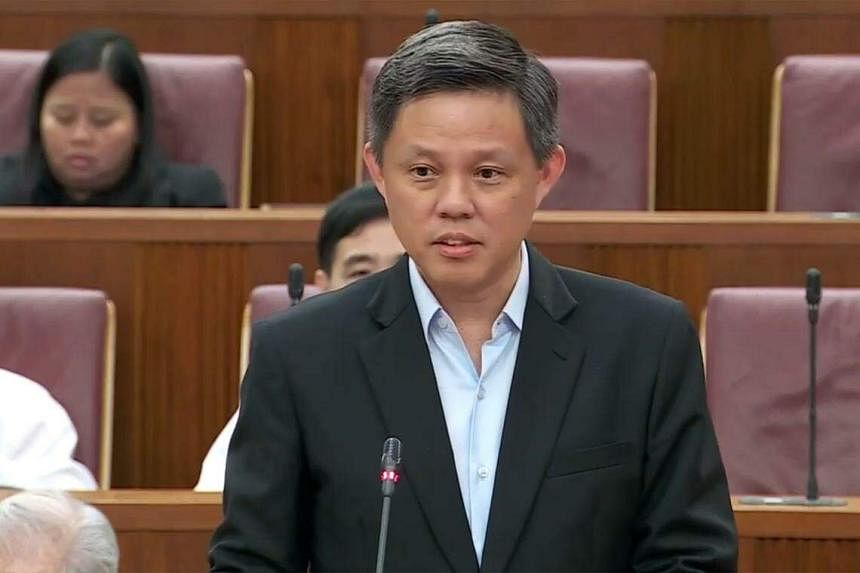from straitstimes.com:
Education Minister Chan Chun Sing lays out potential pitfalls of meritocracy and how to avoid them
Education Minister Chan Chun Sing said meritocracy has been central to Singapore’s social compact. PHOTO: GOV.SG
Amelia Teng
Education Correspondent
UPDATED
19 APR 2023, 5:57 PM SGT
FacebookTwitter
SINGAPORE – A static and narrow metric for defining talent and ability will not help Singapore build a resilient society with diverse strengths to meet future challenges, said Education Minister Chan Chun Sing on Tuesday.
Instead, to do justice to the range of people’s gifts, the Republic must have a system of “continuous meritocracy”, where no single test or point in time determines the rest of one’s life.
Speaking in Parliament on the second day of the debate on
the President’s Address, Mr Chan said meritocracy has been central to Singapore’s social compact, allowing people to progress through their abilities, rather than birth rights, family connections or inherited wealth.
But he also acknowledged that the system is not perfect, and meritocracy is no “panacea” for all societal challenges. In fact, questions have surfaced worldwide about whether meritocracy is fair in the long term.
Defining success using a single, static and narrow metric can cause society to stagnate and become irrelevant, said Mr Chan.
“As society matures, those who have succeeded under the previous and existing metric will tend to want to perpetuate the same set of yardsticks, sometimes to preserve their personal interests and comfort,” he added.
“Sometimes, they just assume that what has worked well will continue to work in a different future, and don’t think of alternatives that society may need going forward.”
Another potential pitfall is rewarding success based on fixed points in life and time, which then entrench people’s life trajectories, said Mr Chan.
“This cannot be our society. People develop at different paces and demonstrate different abilities at different times,” he said, urging employers and society not to fall into the trap of credentialism and use a single metric.
“We must ensure that there is porosity in the ways that people can earn their spurs, contribute throughout life, and allow them to bounce back from setbacks.”
Meritocracy could also lead to stratification over time, said Mr Chan, as successful individuals create exclusive social circles and pass on their wealth to their children, through assets such as property or access to tuition.
This could lead to an “endowment effect”, where access to opportunities and rewards could increasingly be determined not just by merit but by the transfer of wealth and privileges from previous generations.
Meritocracy then becomes harder for the less privileged, whose relative starting state falls further behind the privileged, he added.
Another danger is the misplaced belief that one’s success is attributed entirely to one’s own talent and hard work, without acknowledging society’s role and the need to give back to the system, said Mr Chan.
Building a Singaporean meritocracy
He said the Government will continue to move away from evaluating people’s diverse abilities by any single metric – be it examination results, grade point averages, or whether they hold a degree or diploma.
It is also broadening the ways in which students can access education pathways, he added, such as through aptitude-based admissions. Time and space are also being freed up in schools to impart vital life skills to students.
Students will also have more flexibility in post-secondary and tertiary pathways, he said, through upgrading opportunities and being able to spread out their learning.
More Singaporeans can also obtain a degree from the autonomous universities not necessarily before starting work, but at some point in their working lives, said Mr Chan.
The Government will intensify efforts to help people stay relevant and competitive throughout their lives, through continuing education or training, he said. Industries, institutions and individuals must also play their part in this journey of continual upskilling.
Beyond respecting a variety of professions, “heart” and “hand” work must be fairly rewarded, he said.
For example, the Ministry of Education (MOE) is reviewing the pay and career progression pathways in the special education sector, recognising the challenging work educators in this field do and ensuring they have professional development opportunities like mainstream teachers.
Society must be willing to accept higher costs for some services provided by fellow Singaporeans, said Mr Chan. “Otherwise, no matter how much we broaden the definitions of merit in our school system, none of it will ultimately work because it does not translate into tangible differences in earnings and at the workplace.”
The Government will also do more to uplift the less privileged, he said. “This helps us to ensure that gaps in society are not too stark, opening us up to the politics of envy and threatening the harmony of our society.”
“Our ultimate measure of success as a society is not how many people we can help because they are unable to keep up; but how few people we need to help because we have enabled them to thrive.”
To this end, Singaporeans must have the right values and not forget to give back to society, said Mr Chan.
MOE will strengthen its school cluster system for better sharing of resources and allow more students to benefit from wider networks and build their social capital, he added.
Calling on alumni to do their part, Mr Chan said: “Share your networks and opportunities with the next generation of students, not just in your alma mater but in other schools as well, to help them succeed like you did.
“I look forward to the day when our society defines success not just by one’s achievements, but more importantly by one’s contributions.”

















































